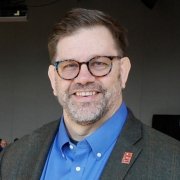Psychological Safety and Accountability - The Secret Sauce of Health Professions Education
MedEdPearls February 2020: How might you apply Dr. Amy Edmondson’s strategies for fostering psychological safety to create a more inclusive and effective learning environment in medical education?
Think of a time when you were a member of an effective team (that was diverse or geographically dispersed. Why was it effective? How did this make you feel as a team member?
In her recent book “The Fearless Organization: Creating Psychological Safety in the Workplace for Learning, Innovation, and Growth,” Dr. Amy Edmondson shares from her 20+ years of research demonstrating that psychological safety is required for effective teamwork and learning.
Psychological safety is a belief that one will not be punished or humiliated for speaking up with ideas, questions, concerns, or mistakes. Edmondson describes the “learning zone” as a combination of high accountability and psychological safety. For example, when you look back over the most recent #MedEdPearls, you will find that accountability and psychological safety foundational to creating a learning environment which supports, providing effective feedback, and encouraging students to engage in the active learning strategies that “Make it Stick.”
Edmondson also provides strategies for inclusive leaders that are applicable to educators. Inclusive leaders:
- Are accessible
- Proactively invite input
- Acknowledge their own fallibility
- Lower the psychological costs of speaking up
- Raise the psychological costs of silence
Join the #MedEdPearls Twitter discussion to share how you apply these strategies while teaching trainees!
About the MedEdPearls Author

Larry Hurtubise
PhD
- Curriculum and Instruction Consultant, Michael V. Drake Institute for Teaching and Learning, Ohio State University
- Jean Bailey, PhD – Virginia Commonwealth University School of Medicine
- Carrie Bowler, EdD, MS, MLSCM (ASCP) – Mayo Clinic School of Continuous Professional Development
- Kristina Dzara, PhD, MMSc (Educators ’16; Assessment ’16; HCE 2.0 ’17) – Saint Louis University School of Medicine
- Shanu Gupta, MD, SFHM – University of South Florida Morsani College of Medicine and Tampa General Hospital
- Jennifer Hillyer, PhD – Northeast Ohio Medical University
- Larry Hurtubise, PhD, MA (HCE 2.0 '16) – The Ohio State University
- Anna Lama, EdD, MA – West Virginia University School of Medicine
- Machelle Linsenmeyer, EdD, NAOME (Assessment ’07) – West Virginia School of Osteopathic Medicine
- Skye McKennon, PharmD, BCPS, ACSM-GEI – Washington State University Elson S. Floyd College of Medicine
- Rachel Moquin, EdD, MA – Washington University School of Medicine
- Stacey Pylman, PhD – Michigan State University College of Human Medicine
- Leah Sheridan, PhD – Northeast Ohio Medical University
- Lonika Sood, MBBS, MHPE – Washington State University Elson S. Floyd College of Medicine
- Mark Terrell, EdD – Lake Erie College of Osteopathic Medicine
- Stacey Wahl, PhD – Virginia Commonwealth University School of Medicine
Harvard Macy Institute
Harvard Macy Institute
The Harvard Macy Institute educates, connects, and serves health care leaders around the globe by providing advanced faculty development programs, thought leadership, and impactful networking opportunities.
6 Programs

